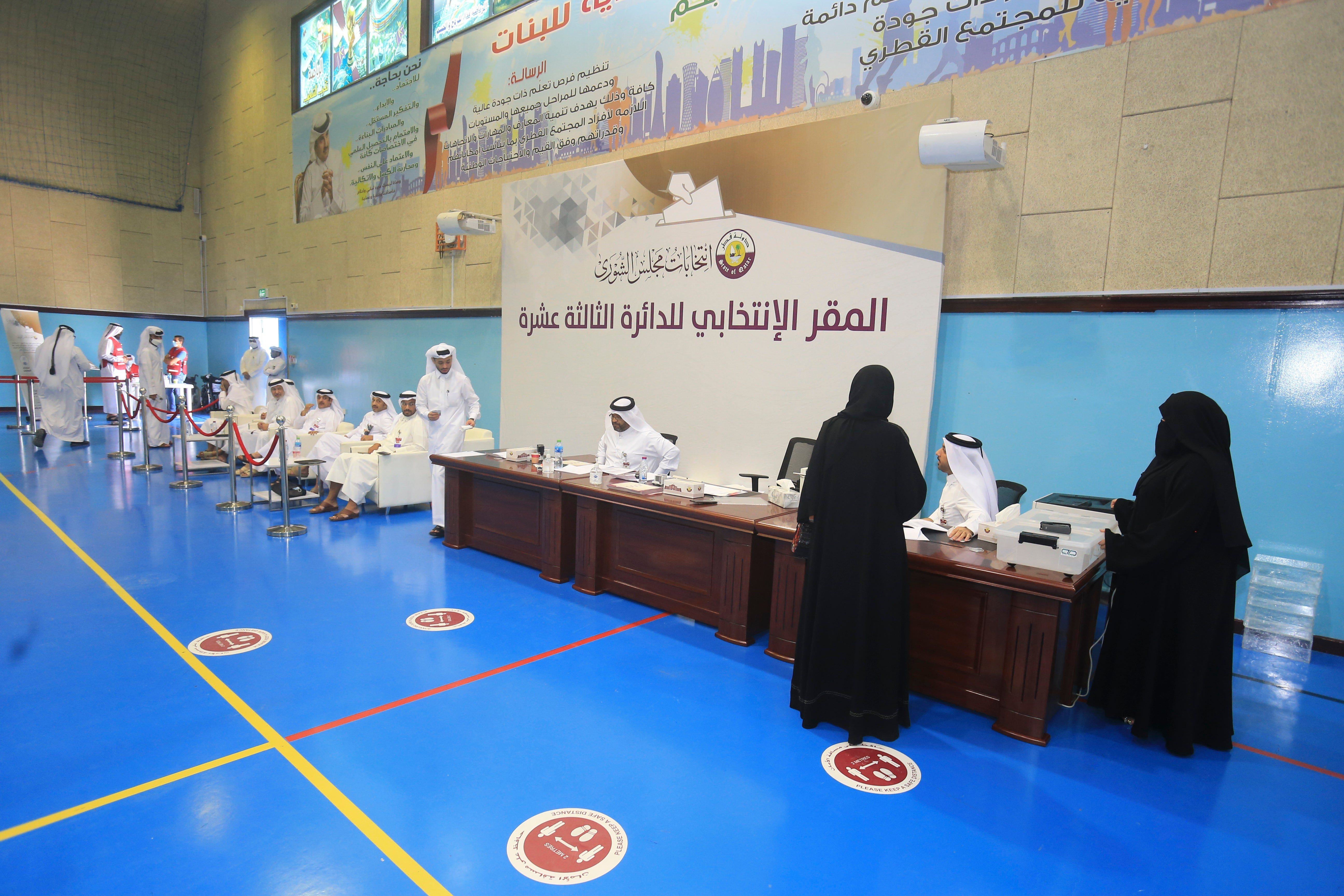In modest step, Qatar holds its 1st legislative council vote
Qatari citizens have voted for the first time in elections for an advisory council

Your support helps us to tell the story
From reproductive rights to climate change to Big Tech, The Independent is on the ground when the story is developing. Whether it's investigating the financials of Elon Musk's pro-Trump PAC or producing our latest documentary, 'The A Word', which shines a light on the American women fighting for reproductive rights, we know how important it is to parse out the facts from the messaging.
At such a critical moment in US history, we need reporters on the ground. Your donation allows us to keep sending journalists to speak to both sides of the story.
The Independent is trusted by Americans across the entire political spectrum. And unlike many other quality news outlets, we choose not to lock Americans out of our reporting and analysis with paywalls. We believe quality journalism should be available to everyone, paid for by those who can afford it.
Your support makes all the difference.Qatari citizens voted for the first time in elections for an advisory council on Saturday — a long-delayed step that aims to give people in the autocratic sheikhdom slightly more say over how they're ruled.
The “experiment," as Qatari officials have described the vote, comes as the 2022 World Cup casts a global spotlight on the hereditarily ruled nation and generates pressure for reform. Qatar first introduced plans for the legislative elections in its 2003 constitution, but authorities repeatedly postponed the vote.
Qataris on Saturday headed to the polls to choose two-thirds of the 45-member Shura Council which drafts laws, approves state budges, debates major issues and provides advice to ruling emir Sheikh Tamim bin Hamad Al Thani. The body does not have sway, however, over matters of defense, security and the economy.
The vast majority of the nearly 300 candidates are men, with nearly all hailing from the same family or tribe in several districts.
The country's electoral law, which distinguishes between born and naturalized Qatari citizens, and bars the latter from electoral participation, has drawn criticism from rights groups. In a report last month, Human Rights Watch described the system as “discriminatory," excluding thousands of Qataris from running or voting. The disqualifications have sparked minor tribal protests that led to several arrests.
Sheikh Tamim, who previously elected all the council members, will handpick the remaining 15 members of the body and retain ultimate authority over decision-making in the energy-rich country. Like other Gulf Arab states, Qatar bans political parties. Foreign workers outnumber Qatari citizens in the tiny country of 2.8 million nearly nine to one.
Among the sheikhdoms of the Persian Gulf only Kuwait's parliament has genuine sway over the government, with lawmakers empowered to introduce laws and question ministers. The elected body, however, clashes frequently and raucously with the emir-appointed Cabinet, blocking major initiatives and hampering economic development.
The move brings Qatar more in line with the United Arab Emirates where citizens vote for a limited number of seats in a consultative parliament that advises the government.